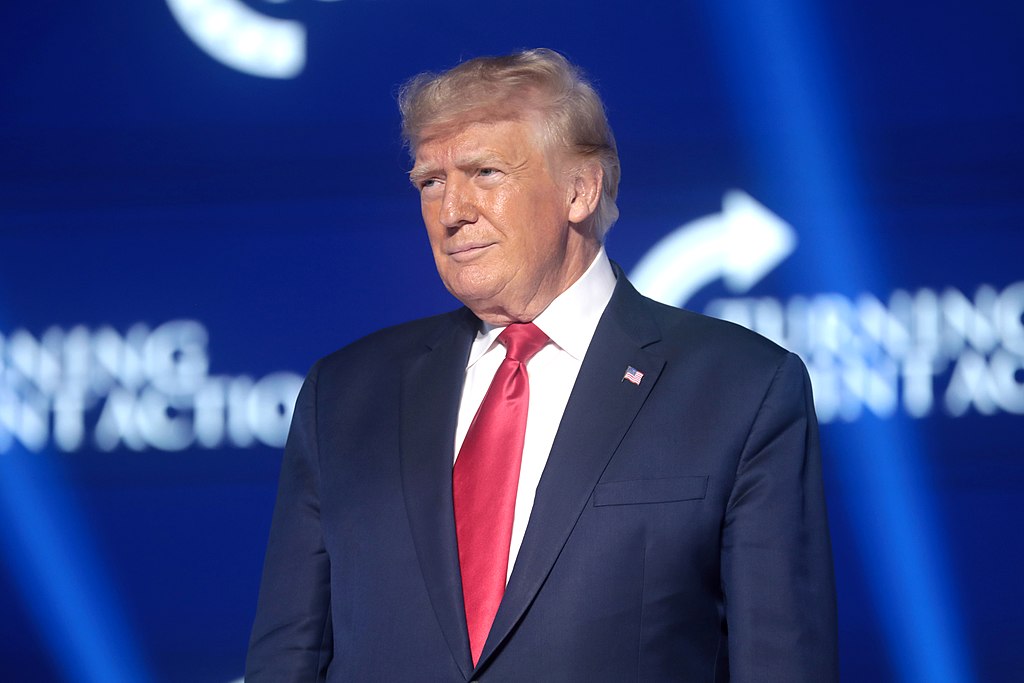A recent survey conducted by the Napolitan News Service has made waves in the political landscape by suggesting that nearly one-third of Democrats expressed a preference for former President Donald Trump's death. This explosive finding, coming just ahead of the 2024 presidential election, has ignited outrage and concern, raising troubling questions about the polarization of American politics and the increasingly hostile discourse surrounding Trump’s political career.
The survey, which polled a cross-section of Democratic voters, revealed that a significant portion of respondents indicated they would have preferred to see Trump killed, an alarming sentiment that reflects the deep-seated divisions in the country. While political opposition is nothing new in the United States, the nature of this particular survey result points to an escalation in the rhetoric surrounding Trump, who has remained a central figure in American politics despite his 2020 election defeat.
Trump, a polarizing figure since his 2016 campaign, continues to face intense criticism from his opponents, particularly within the Democratic Party. His legal battles, policy decisions during his presidency, and his refusal to concede the 2020 election have kept him in the headlines and fueled passionate responses from both supporters and detractors. This latest survey appears to capture the extreme emotions that his continued presence in the political arena has generated, with some Democrats expressing views that go beyond conventional political opposition.
The implications of such findings are significant. The survey points to a political climate in which hostility toward Trump has moved into dangerous territory. Political analysts warn that this level of polarization could undermine efforts to bridge the divide between political factions, as extreme views gain traction on both sides. The idea that a substantial portion of one political party could prefer the death of a former president is likely to provoke heated debate about the nature of modern American politics and the consequences of sustained political conflict.
Despite the shock value of the survey’s results, there is no confirmation of its broader impact or accuracy. The Napolitan News Service, which conducted the survey, has faced criticism in the past for its methodologies, and other political observers have cautioned against taking these results at face value. Many have suggested that such surveys may exaggerate fringe opinions or fail to capture the full spectrum of voter sentiment. Regardless, the findings have undoubtedly generated widespread attention, further intensifying the already charged atmosphere ahead of the 2024 presidential election.
As Trump prepares for another possible run for the White House, the nature of opposition to his candidacy will remain a topic of intense scrutiny. While many Americans express strong disapproval of his policies and conduct, the emergence of such extreme sentiments underscores the challenges facing both political parties as they navigate an increasingly divided electorate. Whether this survey reflects a genuine shift in attitudes or merely an outlier in political discourse, it has raised alarm bells about the dangers of unchecked political animosity.
EconoTimes cannot independently verify the details of this survey or the specific claims made regarding Democratic voters’ preferences. The findings should be viewed with caution, and further investigation is necessary to understand the full context of these results.



 Does international law still matter? The strike on the girls’ school in Iran shows why we need it
Does international law still matter? The strike on the girls’ school in Iran shows why we need it  Trump Says U.S.-UK Relationship Has Deteriorated After Starmer Hesitates on Iran Strikes
Trump Says U.S.-UK Relationship Has Deteriorated After Starmer Hesitates on Iran Strikes  Melania Trump Chairs Historic U.N. Security Council Meeting on Children Amid Iran Conflict
Melania Trump Chairs Historic U.N. Security Council Meeting on Children Amid Iran Conflict  Suspected Iranian Drone Hits CIA Station at U.S. Embassy in Riyadh Amid Rising Middle East Tensions
Suspected Iranian Drone Hits CIA Station at U.S. Embassy in Riyadh Amid Rising Middle East Tensions  Trump to Attend White House Correspondents’ Dinner 2026, Ending Long Boycott
Trump to Attend White House Correspondents’ Dinner 2026, Ending Long Boycott  Trump’s Iran Strikes Spark War Powers Clash in Congress
Trump’s Iran Strikes Spark War Powers Clash in Congress  AI is already creeping into election campaigns. NZ’s rules aren’t ready
AI is already creeping into election campaigns. NZ’s rules aren’t ready  Israel-Hezbollah Escalation Deepens Lebanon’s Role in Middle East Conflict
Israel-Hezbollah Escalation Deepens Lebanon’s Role in Middle East Conflict  Pentagon Downplays ‘Endless War’ Fears After U.S. Strikes on Iran Escalate Conflict
Pentagon Downplays ‘Endless War’ Fears After U.S. Strikes on Iran Escalate Conflict  Michael Whatley Wins North Carolina GOP Senate Primary, Setting Up High-Stakes Battle With Roy Cooper
Michael Whatley Wins North Carolina GOP Senate Primary, Setting Up High-Stakes Battle With Roy Cooper  U.S. Officials Review Tencent’s Stakes in Epic Games, Riot Games Over Security Concerns
U.S. Officials Review Tencent’s Stakes in Epic Games, Riot Games Over Security Concerns  Santander’s $12.2B Webster Financial Deal Faces Uncertainty Amid U.S.–Spain Trade Tensions
Santander’s $12.2B Webster Financial Deal Faces Uncertainty Amid U.S.–Spain Trade Tensions  European Allies Deploy Air Defenses to Cyprus After Drone Attack on RAF Akrotiri Base
European Allies Deploy Air Defenses to Cyprus After Drone Attack on RAF Akrotiri Base  Trump and Merz Meet at White House Amid Iran Strikes and Trade Tensions
Trump and Merz Meet at White House Amid Iran Strikes and Trade Tensions  Supreme Court Backs GOP Lawmaker in New York Redistricting Fight Ahead of Midterms
Supreme Court Backs GOP Lawmaker in New York Redistricting Fight Ahead of Midterms  Why did Iran bomb Dubai? A Middle East expert explains the regional alliances at play
Why did Iran bomb Dubai? A Middle East expert explains the regional alliances at play  Middle East Air War Triggers Massive Flight Cancellations and Global Airline Disruptions
Middle East Air War Triggers Massive Flight Cancellations and Global Airline Disruptions 





























